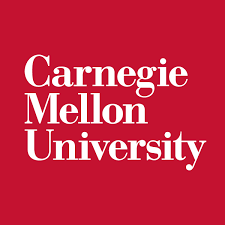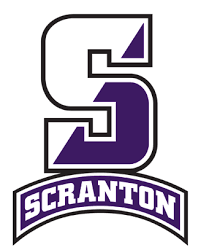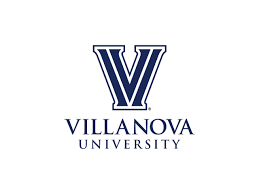Find Your Perfect Business Degree
www.business-management-degree.net is an advertising-supported site. Featured or trusted partner programs and all school search, finder, or match results are for schools that compensate us. This compensation does not influence our school rankings, resource guides, or other editorially-independent information published on this site.
University of Pennsylvania

Undoubtedly one of the best leading business administration programs in the United States, the University of Pennsylvania Wharton School of Business has attracted business moguls for centuries. Heirs to billion-dollar family fortunes like Ivanka Trump, as well as finance gurus like Warren Buffet, have all graced the halls of the Wharton School of Business at some point in time.
The world-class business program is known for its competitiveness and for attracting some of the most driven and ambitious business leaders in the United States.
The average salary of a graduate of the Wharton School of Business amounts to $170,567. Over 93 percent of graduates are employed within at least three months of graduation. The school is known for its strong network of alumni, and alumni are often able to open incredible doors of opportunity for graduates.
In the Wharton MBA program, students have over 200 elective courses to choose from in developing their educational programs. They can easily choose a specialty field of study that matches their interests and goals.
The Wharton School of Business has several educational programs available at the University of Pennsylvania. The programs included as an undergraduate degree program are:
- The Huntsman Program in International Studies and Business,
- The Jerome Fisher Program in Management and Technology,
- The Roy and Diana Vagelos Program in Life Sciences and Management,
- Health Policy and Administration
- plus more dual degree programs.
There are MBA, doctoral, interdisciplinary, and executive educational programs also available. In the undergraduate degree program, students will earn a B.S. in Economics from the Wharton School.
The Wharton School estimates that tuition costs for 2013-2014 amount to $64,828. When other costs are added to this figure, such as books, living costs, and other miscellaneous costs, the total amounts to $97,080.
University of Pennsylvania Statistics:
Location: Philadelphia, PA
Student Demographics: 24,725 students enrolled with 11,678 being undergraduates, 52% female, 48% male enrollment
Student to Faculty Ratio: 6 to 1
Campus Life: When students enroll in one of the Wharton business programs, they become part of the Wharton community. From student organizations to a constant stream of cocktail events, there is no shortage of ways for business students to infuse themselves into the life and culture that make up the Wharton community. Over 36 percent of the Wharton student body is made up of international students, so students can also appreciate the diverse makeup of the student body.
Amongst the wide range of student organizations available, students can choose from professional clubs, international/cultural clubs, social/special interest clubs, community service clubs and athletic clubs. All it takes is a willingness to expand one’s horizons and meet new people to become part of the student life at Wharton. Overall, students will enjoy being part of an exclusive group within the business world when they become Wharton alumni.
For more information, please visit their website
Carnegie Mellon University

With a total enrollment of only 418 full-time students, the Carnegie Mellon University Tepper School of Business is renowned for providing a high-quality, innovative business education.
Admission into the Tepper School of Business is very competitive, and only 27.5 percent of students applying for admission are ultimately accepted. There are about 1,500 students who apply for admission into the school every year, and only about 420 are accepted every year.
The average graduate of Tepper’s MBA program earns an average salary of $129,127. Within three months of graduation, over 90 percent of graduates are able to find employment. The alumni network is thriving at Carnegie Mellon, and alumni are always happy to help a graduate of the Tepper School of Business. The current tuition rate is $55,800 a year for full-time students. Part-time students pay an average of $1,815 per credit hour. The executive degree program costs a total of $80,000.
Carnegie Mellon has several business programs through its undergraduate business program, undergraduate economics program, MBA program, executive MBA program, MS Computational Finance program, and doctoral program. Students also have the option of earning a joint M.B.A./J.D. through the Tepper School of Business and the University of Pittsburgh School of Law. This type of dual degree can be beneficial for a student who anticipates practicing corporate law or another business-related area of law.
The Tepper School of Business uses a mini-semester system for awarding grades. This means that students take courses in increments of four quarters. Each course lasts a minimum of 7.5 weeks. Carnegie Mellon offers expansive opportunities for students to be able to study abroad. They can partake in Global Treks, which are two-week trips aimed at expanding students’ cultural experiences in the business world abroad.
There are many renowned alumni who have graduated from the Tepper School of Business. These individuals include Dina Dublon, the chief financial officer of JPMorgan Chase & Co., Paul Allaire, former CEO of Xerox, Francisco D’Souza, CEO of Cognizant Technology Solutions and David Coulter, the former CEO of Bank of America Corp.
Carnegie Mellon University Statistics:
Location: Pittsburgh, PA
Student Demographics: 11,978 students enrolled with 5,921 being undergraduates, 42% female, 58% male enrollment
Student to Faculty Ratio: 13 to 1
Campus Life: Business students at Carnegie Mellon enjoy being part of a close-knit community. Many business students have interests outside of business that include art, law, film, healthcare, and other fields. There are over 130 student organizations available at Carnegie Mellon. The school is located in Pittsburgh, which is a diverse educational mecca that boasts an academic community of over 86,000 students.
It is easy for students from Carnegie Mellon to branch out and network with students from other schools in the area, such as the Wharton School of Business. The connections that students may gain from being enrolled at Carnegie Mellon can present many exciting business opportunities to students for the rest of their lives. From investment banking to consulting in world-renowned agencies, students will succeed once they become alumni of Carnegie Mellon.
For more information, please visit their website
University of Scranton

At the University of Scranton, business students gain a dynamic perspective on how they can use their business degrees to improve society. The Kania School of Management utilizes the most innovative technology to give students a high-quality educational experience.
The school offers its MBA business administration program, as well as other educational opportunities through its undergraduate, graduate, continuing education, fellowship, and doctoral departments. The Kania School of Management has its full accreditation by the Association to Advance Collegiate School of Business (AACSB).
Students who choose the Kania School of Management for their business degree typically appreciate the Jesuit influence that can be found within the school. The school adheres to a Jesuit philosophy, and its educational programs are aimed at instilling notions of justice and responsibility within students.
Students also choose the Kania School of Management for the flexibility that they can have in creating course schedules. The school affords them greater flexibility for completion of the MBA program in comparison with other competitive business schools in the area.
In the MBA program, students will take courses like:
- Economics,
- Accounting,
- Finance,
- Management Information Systems,
- Marketing,
- Operations Management
- and Enterprise Management Technology.
What distinguishes the educational experience offered by Kania is the fact that students can gain a well-rounded education and graduate with knowledge in many subject areas required for success in the business world.
There are a total of 506 students who are enrolled in the full-time business programs offered by the Kania School of Management. About 150 students are enrolled on a part-time basis within the school’s business programs. Students should be aware of the make-up of the student body, which is 71.9 percent male and 28.1 percent female.
University of Scranton Statistics:
Location: Scranton, PA
Student Demographics: 5,898 students enrolled with 4,041 being undergraduates, 55% female, 45% male enrollment
Student to Faculty Ratio: 15 to 1
Campus Life: One of the benefits of attending the University of Scranton for its business programs is that students can appreciate the Jesuit traditions of the school and its focus on community. The school does not have the same cutthroat atmosphere that can be found at other competitive business schools. The school has a selectivity rate of 61 percent.
While it is difficult to gain admission into the school’s business programs, it is not a nearly impossible feat as it may be with other competitive business schools. Students will find that it is easy to develop mentorships and professional relationships with instructors at Scranton. Students can also find many opportunities for participating in community service at Scranton. Overall, students tend to have a very positive experience at the Kania School of Management.
For more information, please visit their website
Lehigh University

With a total student population of 7,055, Lehigh University offers just the right balance between a large university and a small, private school. Students can choose from a variety of business programs at Lehigh’s College of Business and Economics. The business college is renowned for shaping future generations of business leaders.
The college also places a strong emphasis on learning through experience and the development of analytical abilities. There is a four-year business program offered through the undergraduate school, and there are also two other programs offered by the P.C. Rossin College of Engineering.
Students entering the Lehigh College of Business and Economics should be prepared to encounter a rigorous academic experience. Employers have great respect for the business programs offered by Lehigh. The size of the MBA business program is much smaller than the school’s total population of 7,055.
Only 25 students are enrolled in the full-time MBA program, and 219 students are enrolled in the part-time program. These figures may be due to the selectivity of the school and the difficulty of gaining admission into this rigorous academic program.
The current cost of tuition is $950 per credit. About 72 percent of the students are male, and 28 percent of the students are female. Lehigh University has received strong ratings from U.S. News & World Report as a “best value school” and for its “part-time MBA program.”
For business students who are also seeking research opportunities in an MBA program, Lehigh University may be the right choice. The university is known for the research opportunities offered to undergraduate, graduate, and executive MBA students.
In addition to the traditional MBA business administration program, Lehigh also offers an:
- MS Accounting and Information Analysis program,
- MS Analytical Finance program,
- MS Economics program
- and Ph.D. Business and Economics program.
Joint degree programs that are available include:
- MBA/Engineering
- MBA/Educational Leadership.
Students also have the option of obtaining certifications in Corporate Entrepreneurship, Project Management and Supply Chain Management.
Lehigh University Statistics:
Location: Bethlehem, PA
Student Demographics: 7,080 students enrolled with 4,883 being undergraduates, 43% female, 57% male enrollment
Student to Faculty Ratio: 10 to 1
Campus Life: Students at Lehigh University soon realize that there are teams of leaders, professors and academic coaches willing to help them realize each step needed to achieve their goals. Lehigh prides itself on providing a staff that is available to support students during their time at the university.
There are also many student clubs, fraternities, sororities, artistic organizations, leadership development organizations, athletic teams and other programs that Lehigh offers. Students will find the graduate life at Lehigh to be enriching and engaging. Lehigh offers plenty of networking and professional development opportunities for its graduate business students.
For more information, please visit their website
Villanova University

Villanova University offers a wide range of business programs for students. Students seeking a breadth of educational options may want to consider Villanova.
With seven undergraduate degrees offered in business subjects, seven graduate programs, dual-degree programs and an MBA program catered to executives, there is an array of business educational opportunities available for students.
There is even a Mini-MBA program available to individuals who may not be able to meet the time commitments of a full-time MBA program. One of the dual-degree programs offered includes a JD/MBA with the Villanova School of Business.
The school was founded in 1922, and it has its roots in Catholicism. Father Joseph C. Bartley is the founder and a former dean of Villanova. It is the only school to be directly founded by the Roman Catholic Order of Saint Augustine, and it adheres to the principles taught by Saint Augustine throughout his lifetime. These principles include truth, caring for one another, community, and leadership through public service.
These principles serve as the guiding force for the business program and other educational programs at Villanova. The annual tuition at Villanova University is $42,150 a year. Students graduating from the school can anticipate earning an average salary of $54,628 a year.
Villanova University is a private school, and it is a moderately competitive school for gaining admission. Students admitted into the school have an average SAT score of 1322. The school has a 46 percent selectivity rate in admitting students. While students say that the school is challenging and rigorous, they also say that the school offers the resources needed to thrive in such programs.
Villanova University Statistics:
Location: Philadelphia, PA
Student Demographics: 10,583 students enrolled with 7,100 being undergraduates, 51% female, 49% male enrollment
Student to Faculty Ratio: 12 to 1
Campus Life: Students will find that Villanova University offers many enriching programs. Students are encouraged to enjoy their time at the university by participating in extracurricular activities, sororities, fraternities, and professional development clubs.
They are also encouraged to balance their participation in these clubs with community service. Students enjoy the intellectual, professional, and spiritual growth that they experience at Villanova.
For more information, please visit their website